What’s the difference between “Engager” in French and “Getting engaged” in English?
May 19, 2025Are you one of those French learners who think this means you’re going to get married?
Sorry to let you down, but you’re just being taken on to do something!
False friends in language can cause a lot of laughter and bring you together.
Today you will discover:
- How to properly use the word ‘Engager’ in French
- How to use even more false friends properly!
- How to avoid slipping up with words that sound similar in French but actually mean something else! 🤣
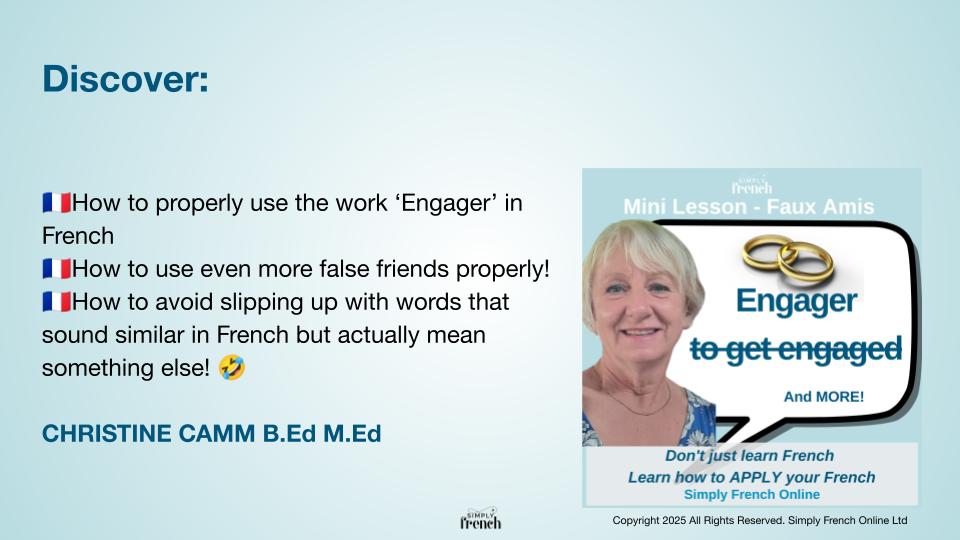
“Engagé” does not mean “Engaged”.
You may think they mean the same but they are from it:
- se fiancer >>> to get engaged
- engagé >>> to take on
Let’s see them in context:
- Je viens de me fiancer à une dame superbe. >>> I just got engaged to a wonderful lady.
- Nous avons engagé un bon plombier pour la salle de bains. >>> We’ve just taken on a good plumber for our bathroom.
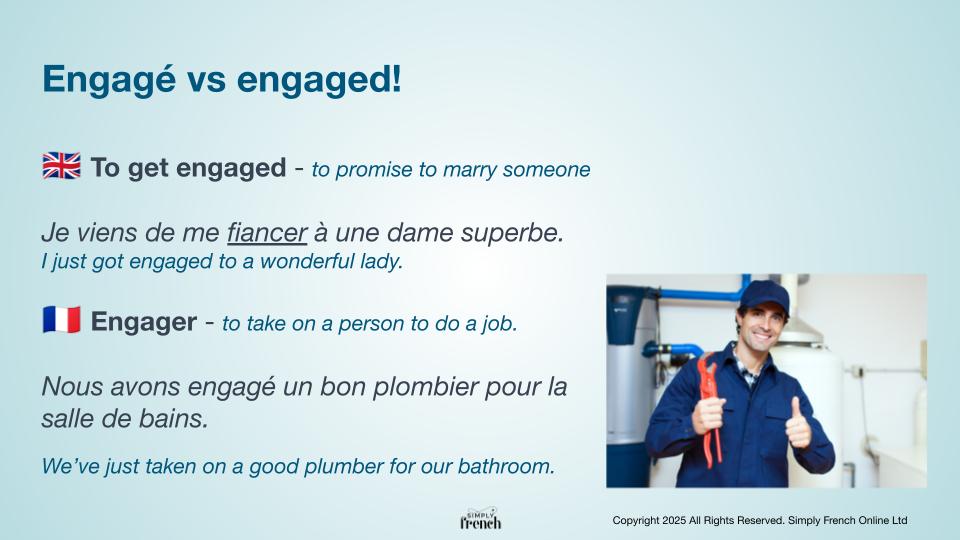
This is such a common mistake. Have a look at their difference:
- finalement>>> eventually
- éventuellement >>> possibly
Here’s a way to use them:
- J’ai finalement fini de travailler. >>> I’ve finally finished working.
- Je finirai éventuellement de travailler ce vendredi. >>> I’ll possibly finish working this Friday.
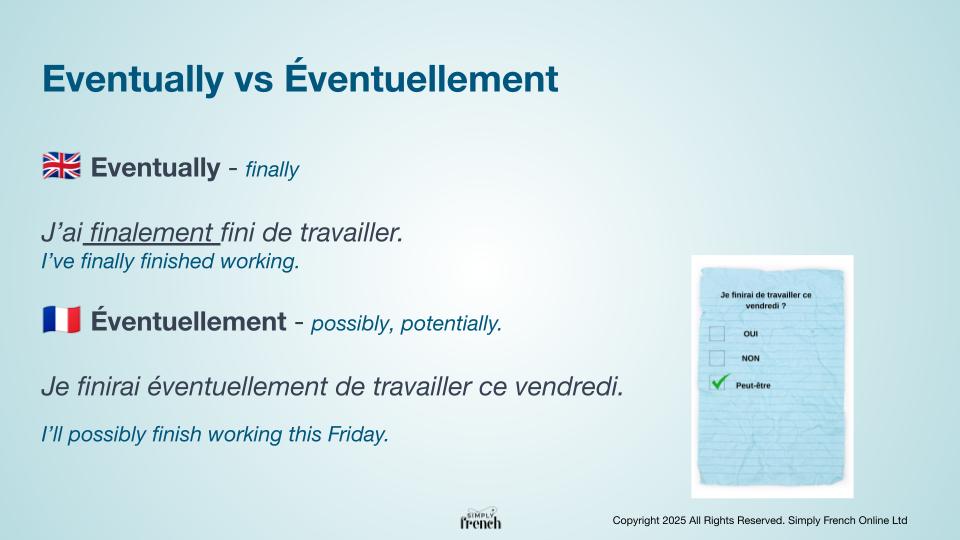
They look identical. However, their meaning and pronunciation vary:
- un visage >>> a face
- face >>> front
Some examples for you:
- Son visage est vraiment mignon. >>> His face is really cute.
- Il a dû faire face à de nombreux défis cette année. >>> I had to face many challenges this year.
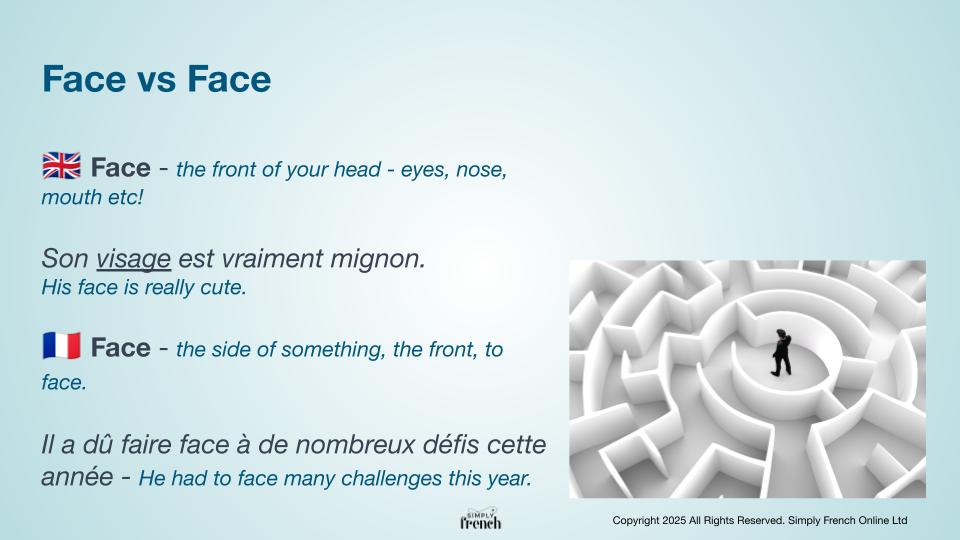
Ready for a real false friend? Look at this one:
- Une figure >>> a face / an important character
- les chiffres >>> figures
Here is how to use them:
- Sa figure est ronde. >>> His face is round.
- C’est une figure importante dans la ville. >>> She’s quite an important person in town.
- Les chiffres sont mauvais cette semaine. >>> Figures are bad this week.
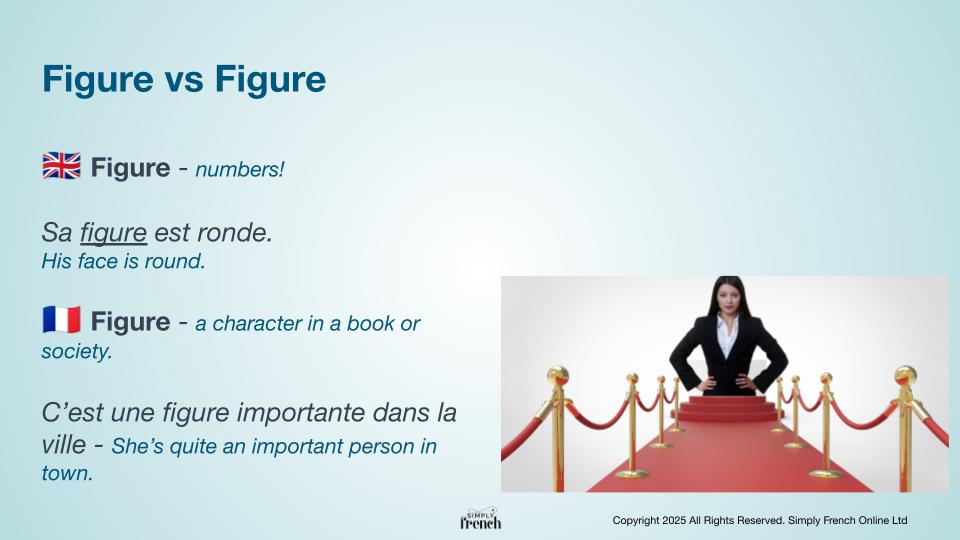
These adjectives do not mean the same thing:
- chanceux >>> fortunate
- fortuné >>> rich
Have a look at these examples:
- Tu es chanceux d’avoir cette belle maison. >>> You are lucky to have this lovely house.
- tu seras fortuné si tu revends cette maison à ce prix ! >>> You’ll be rich if you sell your house at this price!
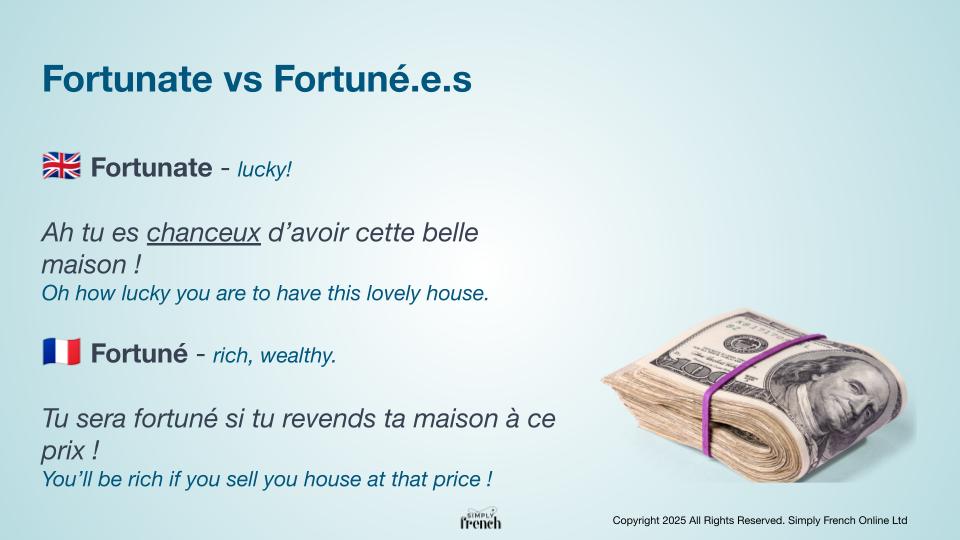
Tips to learn false friends in French.
To start with, choose one thing at a time and master it. Once you do, you can add more to your list.
Then, say it aloud to memorise it.
The word is not enough. Indeed, if you put it into context with your own example it will facilitate.
Then, you want to practise as much as possible or you will forget it.
In a nutshell, there is no need to learn a lot. You would better apply your learning in order to speak French simultaneously with confidence.
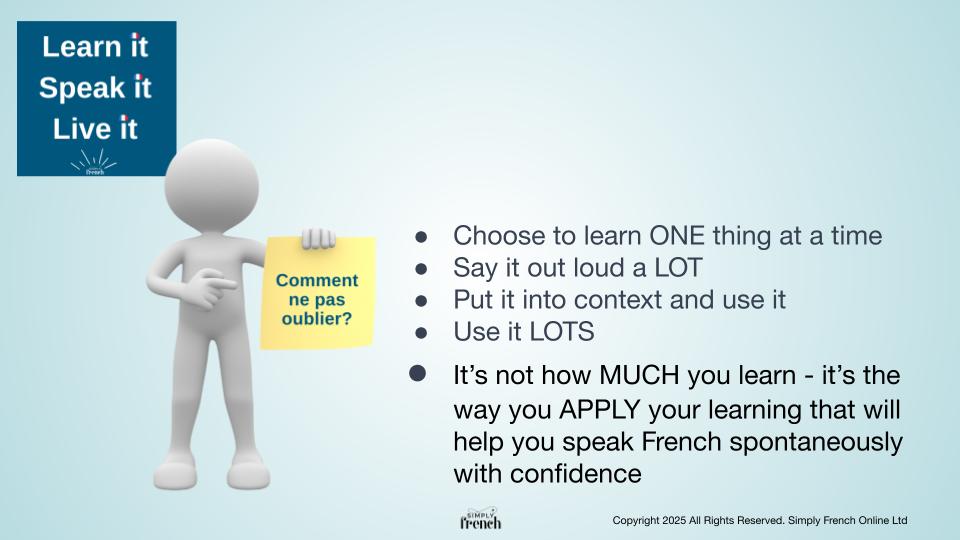
In this mini-lesson, you have covered the following false-friends:
- se fiancer >>> to get engaged vs engagé >>> to take on
- finalement >>> eventually vs éventuellement >>> possibly
- un visage >>> a face vs face >>> front
- Une figure >>> a face / an important character vs les chiffres>>> figures
- chanceux >>> fortunate vs fortuné >>> rich
Are you interested in learning more about false-friends? You may be interested in this mini-lesson:
The difference between ‘Actuellement’ & ‘En fait’ and more false friends
What’s the difference between “Brillant” in French and “Brilliant” in English?
Do you struggle with other false friends?
Free Masterclass
Learn my 4 step method of how to hold meaningful french conversations the R.E.A.L. way in just 30 minutes a day.
When you signup, we'll be sending you weekly emails with additional free content

